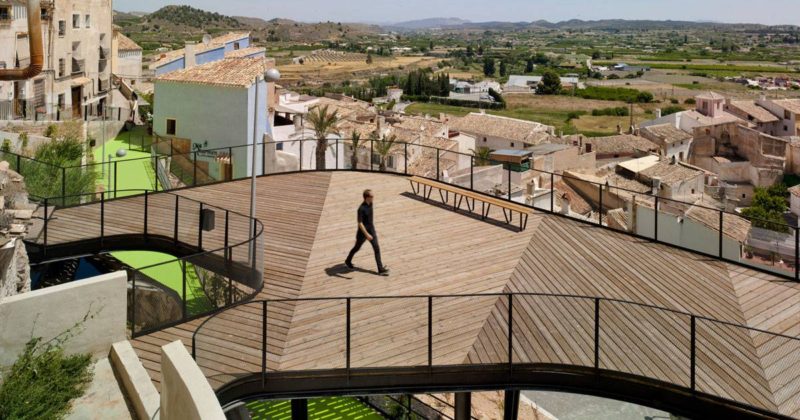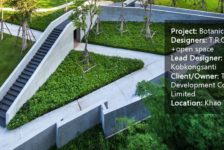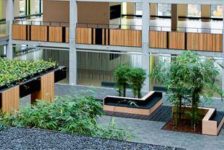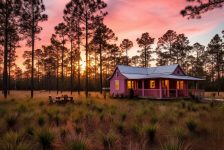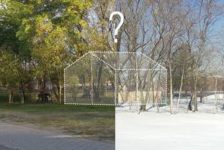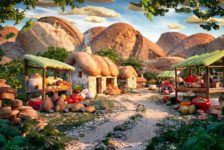Article by Domenico Pistone – “El Coso” garden and business incubator, by Cómo Crear Historias, in Cehegín, Murcia, Spain. It all started in the ’50s, when a heavy snowfall in Cehegín, a Spanish municipality in the autonomous community of Murcia, brought down part of “El Coso”, a part of the high district of the city. Serious harm was done to the community; the event created a barren space within the city and the various height differences did not favor the repopulation of the area. A great void that became a landfill, crossed only with difficulty by the citizens who created trails in their wake. A void which left a city with no water and no paths or walkways for citizens. It is from here that the mysterious history of the garden that produces water begins.
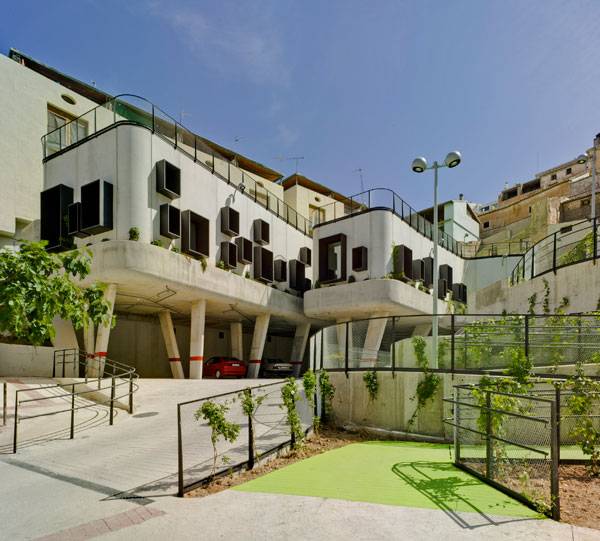
“El Coso” Garden and Business Incubator. Photo Credit: David Frutos
“El Coso” Garden and Business Incubator
For this project, the group of architects thoroughly analyzed the discontent of the citizens, marked paths that were born spontaneously, and started a process of participatory planning and work camps involving the entire city. The garden is a landscape of integration, returning to community members their right to walk through the neighbourhood and acting to connect different sites of the city that were remote. It is also an important example of how a city can create a garden with limited resources.
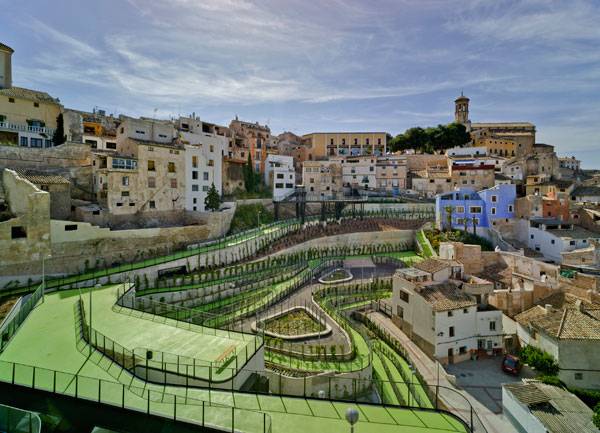
“El Coso” Garden and Business Incubator. Photo Credit: David Frutos
A Project with Many Voices; Participatory Planning
During the design phase, the architectsset themselves a number of questions and objectives, but the primary goal was the linkage and the path within the project. They found 9 possible results under different route conditions; at the same level, through stairs, inclined or with varying dimensions, or organically with the fall.
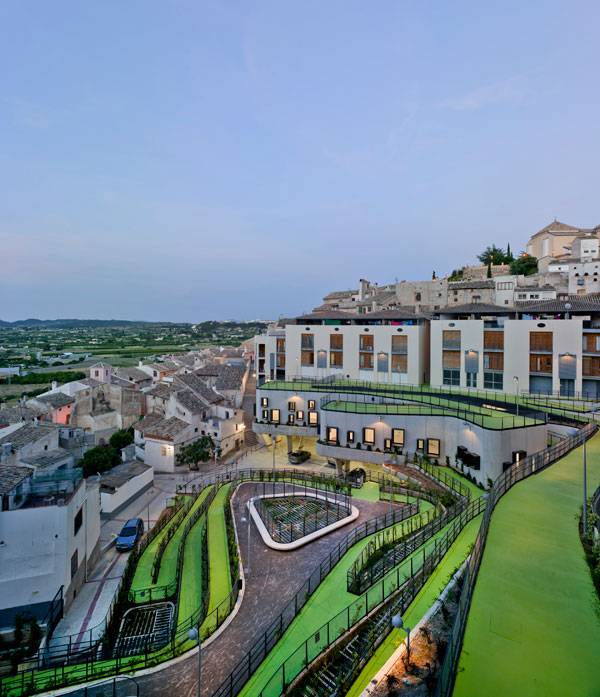
“El Coso” Garden and Business Incubator. Photo Credit: David Frutos
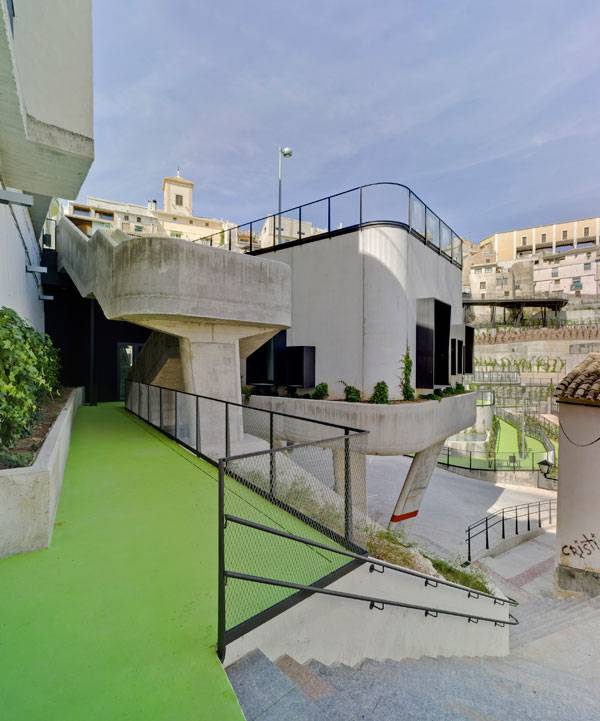
“El Coso” Garden and Business Incubator. Photo Credit: David Frutos
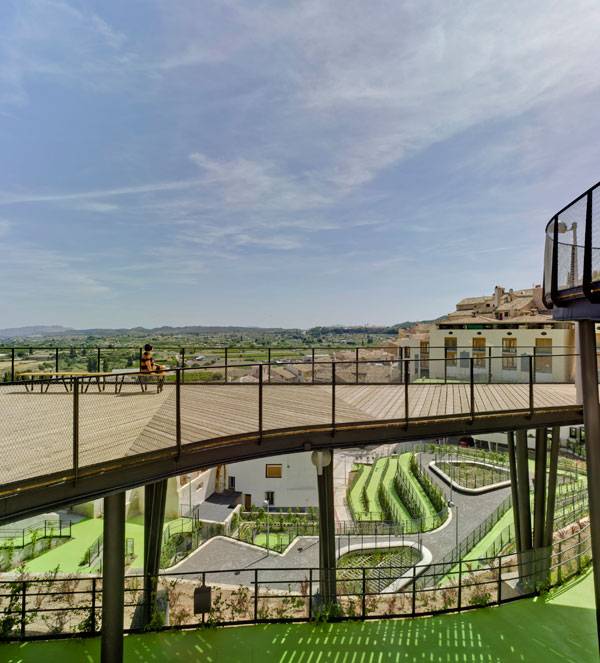
“El Coso” Garden and Business Incubator. Photo Credit: David Frutos
The Vegetation; Cure and Ornament
In order to achieve a result of such a high level, as has been done by the designers, one must undertake an almost obsessive study of the vegetation that would make healing and changing the landscape of El Coso possible. Many plant species are found here that perform the most varied functions such as Typha latifolia, (broadleaf cattail), a macrophita that purifies the water, and which assumes a brown colour in summer and green in the other seasons, or Hedera Hibernica, (Irish ivy), covering retaining walls and colouring them red in autumn and winter (this measure helps the walls accumulate less heat and cools the atmosphere in summer) or the violets’ scent or Freesia x hybrida that flourishes its perfume into the air and cheers the walks of citizens.
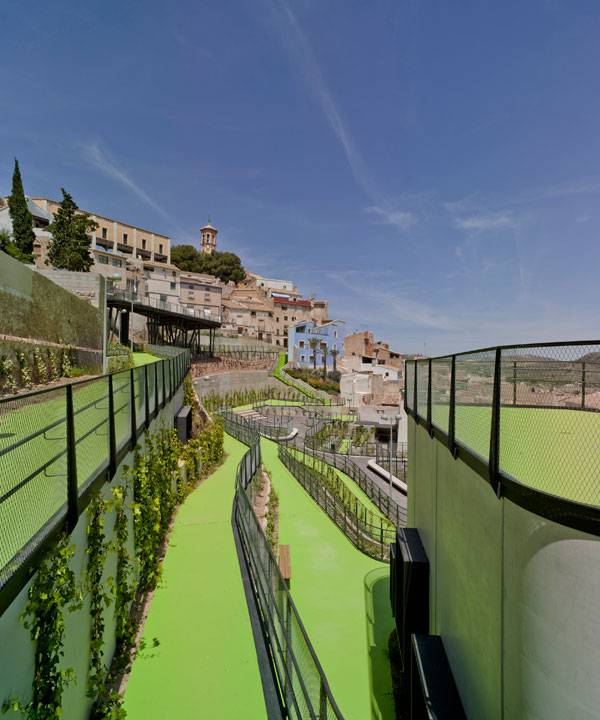
“El Coso” Garden and Business Incubator. Photo Credit: David Frutos
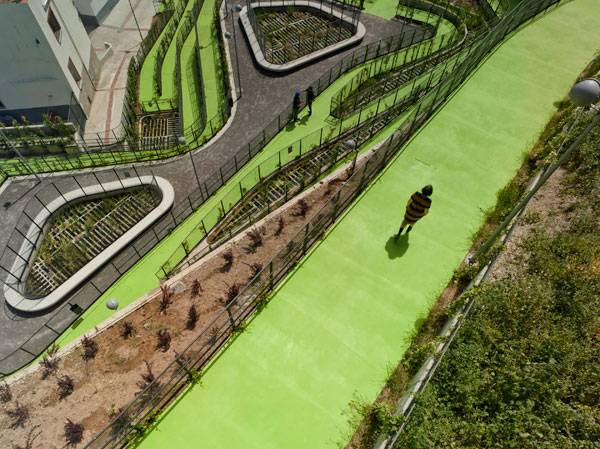
“El Coso” Garden and Business Incubator. Photo Credit: David Frutos
Innovation and Technology Help History
The main structure within the garden houses a business incubator that aims to enhance local excellence by supporting youth policies. Part of the interior of the building overlooks magnificent tanks for wine, partly discovered after the collapse, from the seventeenth century, weaving together culture, architecture, and business. The ceiling of the structure that contains the business incubator is designed to become a viewpoint over the river, the garden, the ponds, and the whole landscape.
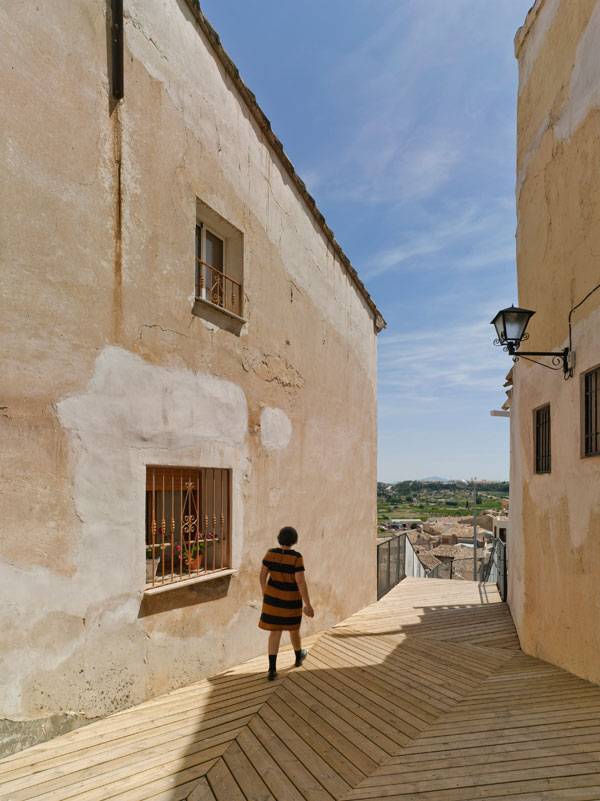
“El Coso” Garden and Business Incubator. Photo Credit: David Frutos
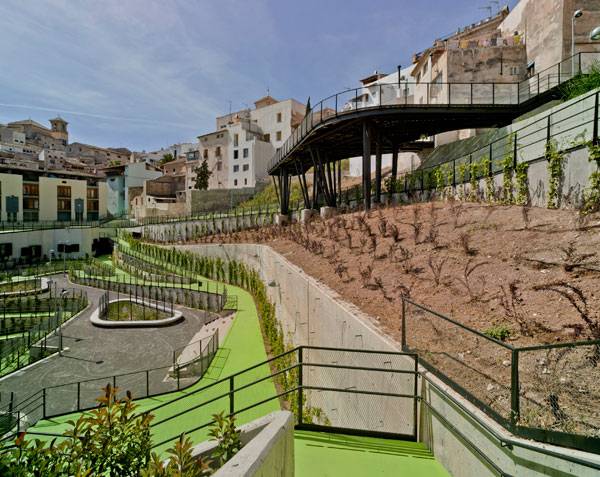
“El Coso” Garden and Business Incubator. Photo Credit: David Frutos
Water as a Metaphor for Life
Never has the name of a project been so spot-on because the “mysterious history of the garden that creates water A.K.A. El Coso” is a project that has something special; it is not limited to the construction sphere, but also involves anyone who walks into its spaces. It is a magical project because it is able, thanks to the water, to give life to a dull, dark place, and it has managed to make a site of bad memories a place of regeneration and happiness. This is the mysterious history of the garden that produces water; a better place, a fantastic project, don’t you think?
Full Project Credits For “El Coso” garden and business incubator:
Project Name: “El Coso” garden and business incubator. Project Title: “The mysterious story of the garden that makes water” Project Location: Cehegín, Murcia, Spain (2003-2015) Architects and technical construction management: Mónica García Fernández and Javier Rubio Montero (cómo crear historias) Quantity surveyor: Patricia León de la Cruz Contractor: Jose Diaz Garcia S.A. Structural engineering: Dolores Romám Mechanical engineering: AGM ingenieros, José Alberto García Fernández Safety and health coordinator: Antonio Martínez Sánchez Owner/ developer: Municipality of the city of Cehegín Photographs: David Frutos Total area: 4.436 m2 Budget (Materials and execution works): 3.111.262 € Project start date: 2003 Construction period: 2011-2015 Recommended Reading:
- Becoming an Urban Planner: A Guide to Careers in Planning and Urban Design by Michael Bayer
- Sustainable Urbanism: Urban Design With Nature by Douglas Fa


